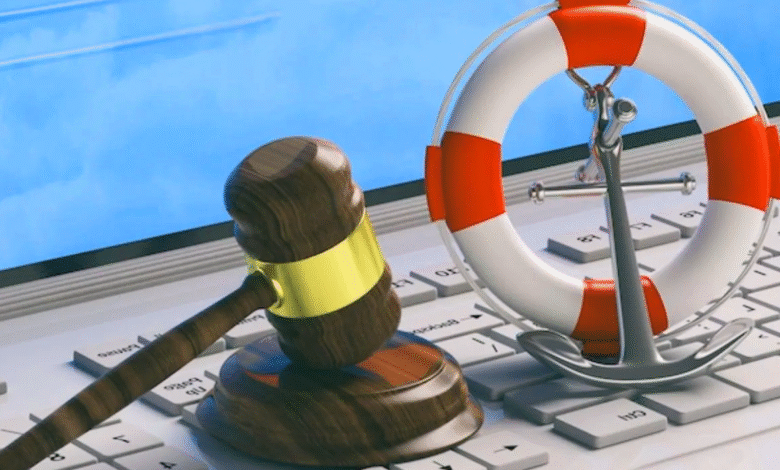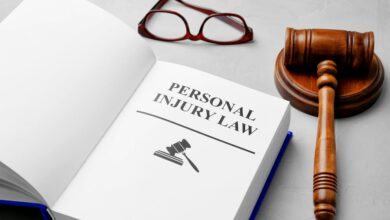What Does a Maritime Lawyer Do? An Introduction to Admiralty and Maritime Law
If you suspect that you need assistance from a maritime lawyer, start the process of interviewing lawyers as soon as possible.

A maritime lawyer, also known as an admiralty attorney, handles legal issues arising from United States maritime law. Maritime lawyers function differently than other terrestrial-based attorneys. This uniqueness results from the peculiar nature of maritime disputes. Ships, cargo, and people move on vessels from one place to another—often in and out of jurisdictions all across the country. Maritime law has evolved over the centuries to address the needs of ship owners, crewmembers, cargo owners, port operators, and other entities operating on the water.
What is Maritime Law?
Maritime law is a vast body of statutes, procedures, common law principles, and rules governing maritime disputes. There are many sources of maritime law, such as the U.S. Constitution, centuries-old common law, federal statutes, international conventions, and sometimes even state law. A key component of maritime law is the concept of “uniformity,” sometimes called “uniformity in admiralty.” Congress and the many courts of the country encourage the application of maritime law to be uniform throughout the nation.
What Kind of Cases Do Maritime Lawyers Handle?
Maritime lawyers are specialists, meaning that they have unique experience and education in maritime law. Many maritime lawyers will only handle maritime matters. Because maritime law is intended to be uniform in both state and federal courts, maritime attorneys tend to handle cases is broad geographic areas. Sometimes, maritime lawyers even team up with generalist attorneys who have a maritime component in a pending case.
While maritime law is itself an attorney specialty, maritime lawyers still develop niches within the field. Some examples of matters handled by maritime lawyers include:
Personal Injury Claims
Statistics are clear: working, commuting, and recreating on the water can be dangerous. The Coast Guard reports that in 2020 alone, there were 3,191 injuries and 767 deaths resulting from 5,265 recreational boating accidents. And despite heightened safety standards for professional mariners, on-the-job injuries remain among the most common in the country. For example, the Centers for Disease Control and Prevention published data showing an average of 117 deaths per 100,000 commercial fishermen versus an average of 4 deaths per 100,000 workers among all other U.S. professions. The takeaway? — The marine transportation industry produces a lot of injuries. Typical issues handled by maritime personal injury lawyers include:
1. Crewmember Injury
Injury compensation under maritime law is distinguished between professional mariners and passengers/pleasure boaters. Crewmember injury cases may involve:
- The Jones Act — If a crewmember is being paid to aid in the operation of a commercial vessel, he or she is likely a “Jones Act seaman.” That means that the mariner is subject to the Jones Act, also known as the Merchant Marine Act of 1920. Under the Jones Act, seamen are entitled to a safe place to work. If an employer is negligent and a crewmember injury results, the seaman can sue his or her employer for money damages under the Jones Act.
- Unseaworthiness — An injured commercial seaman may also have a cause of action in civil court against vessel owners who contribute to injuries. An ancient admiralty law known as the “doctrine of unseaworthiness” requires a vessel owner to provide a vessel and crew that is fit for its intended purposes. The unseaworthiness cause of action is only available to seamen.
- Maintenance & Cure — People are surprised to learn that commercial mariners are not covered by traditional workers’ compensation schemes. Instead, a seaman injured in service of a vessel is entitled to “maintenance and cure.” Like workers’ compensation, maintenance and cure is a no-fault remedy triggered by an injury on the job. Maintenance is a daily stipend paid to the seafarer to help with living expenses, while cure is payment of medical bills associated with the injury or illness. Benefits are paid until the injured mariner reaches maximum medical improvement.
2. Vessel Passenger Injury
Injured vessel passengers do not have claims under the Jones Act, unseaworthiness or maintenance and cure. Instead, they have a claim under general maritime law for negligence. Negligence under maritime law is similar to negligence under most state laws. The elements are duty, breach, causation, and damages. Vessel owners owe a duty of reasonable care under the circumstances to their passengers. If that duty is breached and passenger injury results, the vessel owner can be found liable.
3. Longshoreman, Stevedore, and Harbor Worker Injury
Maritime law covers individuals injured aboard vessels on most commercial waterways, while state law covers most injuries suffered ashore. But what about amphibious workers who service vessels at the dock and load/unload cargo? Are they salty or not? To bridge the gap between maritime and non-maritime workers, Congress passed the Longshore and Harbor Workers’ Compensation Act (LHWCA).
Most amphibious workers are now covered by the LHWCA’s workers’ compensation scheme managed by the United State Department of Labor. Like employees under most state workers’ compensation regimes, longshoremen cannot sue their employers for on-the-job injuries. However, LHWCA workers may be entitled to sue negligent third parties, including the vessel owner, under LHWCA section 905(b). In narrow circumstances, section 905(b) may also allow a limited claim against an employer acting as a vessel owner. This is a complex area of law.
Cargo Damage
It is often said in the marine transportation sector that “90% of everything moves by vessel.” Simply stated—that’s a lot of stuff on ships. And a lot of stuff on ships means a lot of claims for property damage when things go wrong. Cargo is regularly dropped from a height, handled at the wrong temperature, set ablaze, or even lost overboard. The result is a claim for compensation by the cargo owner against a vessel operator or charterer. Maritime lawyers handle these disputes using statutes such as:
1. The Carriage of Goods by Sea Act (COGSA)
COGSA was passed by Congress in 1936 to incorporate the Hague Rules into United States law. It regulates the rights and responsibilities of the cargo owner and the vessel owner. COGSA provides several statutory defenses to a common carrier. It may also limit the liability of the carrier to $500 per package if cargo is damaged while in the carrier’s control. COGSA only applies to shipments of cargo to/from the United States.
2. The Harter Act
The Harter Act was passed in 1893 and was later limited in application by COGSA. The Harter Act applies to the carriage of goods between ports of the United States. With a few key exceptions, the Harter Act functions nearly the same as COGSA. This is another complex area of law.
Charter Party / Contract Disputes
Certain types of contracts are subject to maritime law and handled by maritime attorneys. Examples include charter parties (vessel leases), ship mortgages, contracts for vessel repair, dockage agreements, and seaman employment contracts. Forum selection clauses, choice-of-law provisions, and arbitration agreements are common issues in maritime contract disputes.
Marine Environmental Pollution
Environmental pollution caused by vessels is a complicated and thorny subject under U.S. and maritime law. While these cases are often overseen by maritime lawyers, the scope of applicable laws in broad. Relevant statutes may include MARPOL (the International Convention for the Prevention of Pollution from Ships), the Clean Water Act, the Oil Pollution Act of 1990, the Marine Protection, Research, and Sanctuaries Act, the Resource Conservation and Recovery Act, and other state laws.
When to Hire a Maritime Lawyer
Maritime lawyers serve clients from every aspect of the marine industry: vessel owners, crewmembers, cargo owners, passengers, shoreside workers, offshore workers, and more. If you are involved in a dispute centered around a vessel or commercial waterway, you should contact a maritime lawyer. Here are just a few salty fact patterns that require maritime legal expertise:
- Shipboard Injury or Death
- Damage to Property
- Environmental Pollution
- Vessel Collision and Sinking Casualties
- Insurance Disputes
- Contract Issues
- Government Investigation
These tips may be helpful in identifying the right maritime lawyer for your case:
- If you’re a business defending a case involving any of the above fact patterns, contact your insurance provider—they’ll help you find a qualified maritime attorney.
- If you’re a business with a maritime commercial dispute, ask around for a referral or look for a maritime firm with a broad range of experience.
- If you’re someone who was injured or lost a loved one on the water, contact a maritime lawyer that specializes in maritime personal injury claims for individuals.
A common misconception is that you’ll be charged just for calling a maritime lawyer. In most instances, maritime attorneys offer free initial consultations to learn about your case. You can also contact multiple attorney options and confirm that the consultation is free. For injured individuals, some maritime firms can even work on contingency, meaning that the attorney won’t get paid until you do.
Whatever you do, don’t wait. Maritime disputes, like other legal claims, are subject to statutes of limitation that can eventually bar your claim altogether.
Final Thoughts
Maritime law is complicated, and full-time maritime lawyers are few. If you suspect that you need assistance from a maritime lawyer, start the process of interviewing lawyers as soon as possible. Maritime practitioners are knowledgeable resources and skilled advocates who want to know more about your situation.











